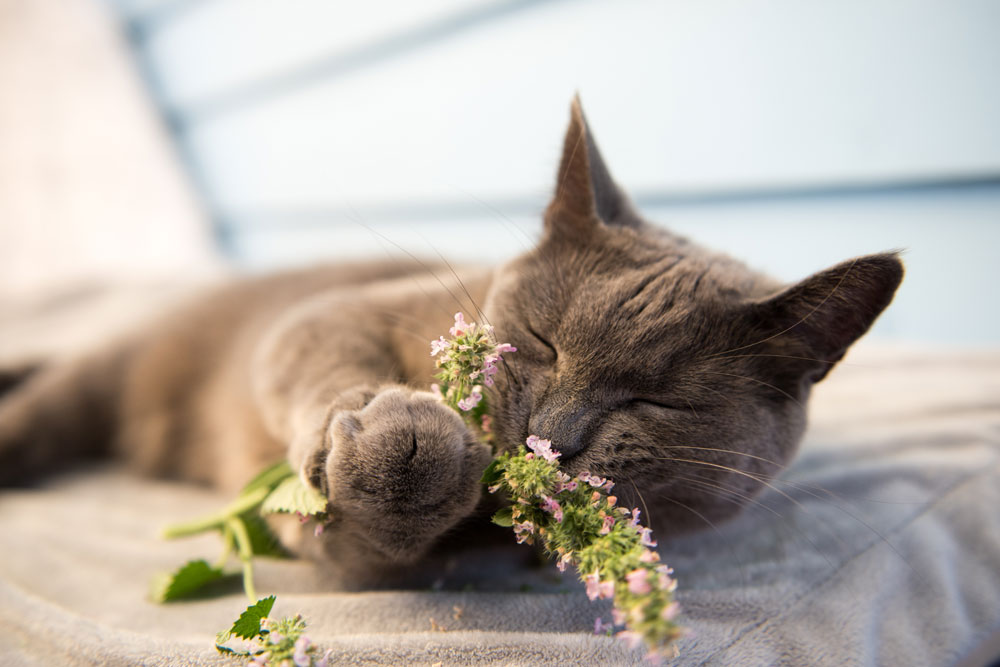Maybe you have seen it for sale at your local pet store, or maybe you even have some of it growing in your house. Your cats go crazy for this green flaky substance (and no, we are not talking about the drug that has recently been legalized in several states). It is catnip! It is often sold in pet stores in little bags and can even be found in cat toys. But what is it about this dried plant that makes cats go crazy?
Catnip, known by its scientific name as Nepeta cataria, is a common plant and a member of the mint family. Its commonly grown in North America and often sprouts lavender colored flowers. The leaves of this plant have been used to make tea as their flowers are said to relieve coughs and is a common ingredient in bug sprays. The reason catnip affects cats the way it does is due to the extra scent organ called the vomeronasal gland on the roof of cats’ mouths. Catnip mimics the scent of feline sex hormones so cats enjoying this substance can behave as though they were in heat. Behaviors include overt signs of affections, relaxation, and happiness. Other cats can display playful or even mildly aggressive behaviors.
Because of these effects, cats can experience a decrease in anxiety and occasionally pain. Some veterinarians suggest leaving some catnip for your cat to play in if they struggle with separation anxiety. However, not all cats respond to catnip. Studies found that approximately 60% of cats will have a behavioral reaction to catnip. There is also some evidence to suggest that the ability to respond to catnip is a dominant genetic trait.
The effects of catnip can vary in length. Typically, behaviors associated with smelling catnip disappear about 10 minutes after exposure. It could take up to half an hour without smelling catnip for your cat to become susceptible to the substance again. Interestingly, cats will not react to catnip until they are 6 months to 1 year old. While giving kittens catnip is not harmful, you may not see them display any behavioral changes associated with smelling catnip. If you have any questions or concerns about introducing your cat to catnip, feel free to present your concerns to your vet during your next visit.




Leave A Comment